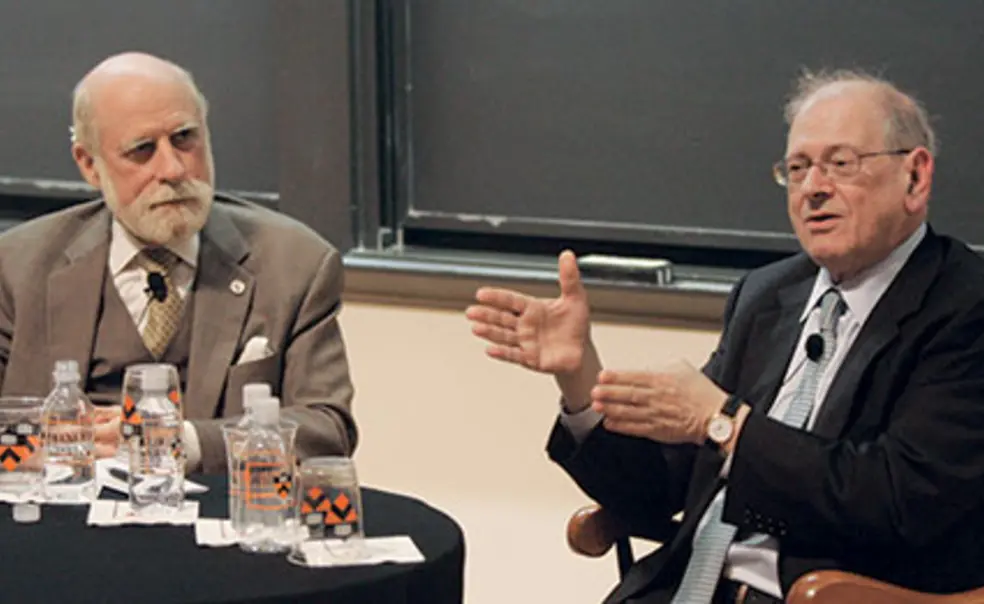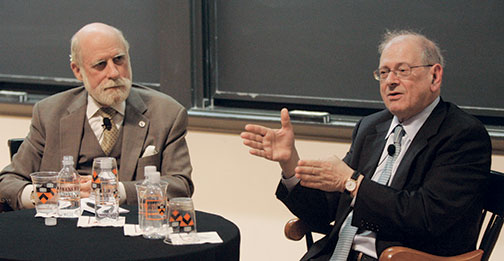‘Serendipity is Critical’: Paving the Way for the Internet
Bob Kahn *64 and Vinton Cerf, credited as the “fathers of the Internet,” looked back at their creation and imagined its future before a packed auditorium at the Friend Center March 12 — the 25th anniversary of the World Wide Web.
In May 1974, the two men published a paper setting forth the set of engineering rules for connecting computer networks that today are considered to have made the Internet possible. “Nobody really thought it was a good idea back then, in terms of [business] opportunities,” Kahn said, recalling a world in the early 1970s when most computers were huge, shared mainframes, and PCs did not exist.
“To me, the Internet was a set of protocols and procedures for connecting lots of components,” Kahn said. “It has since scaled by a factor of a million.”
Over the last four decades, Kahn said, the Internet has evolved from those original protocols much as the American Constitution has been adapted to meet changing social needs. “Serendipity is what is critical here,” he said. “You have to keep your mind open.”
Cerf spoke of the ways that one technological advance makes others possible, citing the invention of the integrated circuit in 1958, which spawned the semiconductor industry. “Things happen because it is possible for them to happen,” he said.
Kahn is president and CEO of the nonprofit Corporation for National Research Initiatives. Cerf is Google’s vice president and chief Internet evangelist.
Both men spoke enthusiastically about where the technology might go next, such as contact lenses that can monitor blood-glucose levels and wirelessly transmit the information to the wearer’s physician.
In the audience, dozens of students tapped away on laptops, tablets, and smartphones, all of them networked over the Internet that the men speaking in front of them had helped to create.













No responses yet